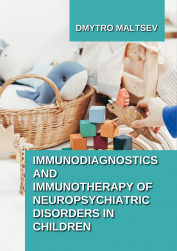Assessment of markers of inflammation and neuronal damage in patients with autism spectrum disorders associated with genetic deficiency of the folate cycle
Keywords:
Immunodiagnostics, immunotherapy, neuropsychiatric disorders, children, diagnostics, therapyAbstract
Autism spectrum disorders (ASD) currently occur in at least 1 % of children in the modern population, and the trend towards an increase in the frequency of this psychiatric pathology among the pediatric population continues. Although more than 100 genetic causes of the ASD phenotype in children have been proposed, most of them are rare and do not significantly affect either the high prevalence of the disease or the trend towards an increase in the frequency of these disorders in the population. Genetic deficiency of the folate cycle (GDFC) is a fairly common pathology of the human genome, which may explain the current epidemiological features of ASD. The evidence base for the association of GDFC and ASD in children is based on the results of 5 meta-analyses of randomized controlled clinical trials conducted from 2013 to 2020 and covering the results of 8 to 25 trials involving 1361 to more than 3000 children with ASD and 6591 to 7257 healthy children. It has been established that GDFC leads to the development of a number of pathological biochemical changes in the body, including hyperhomocysteinemia, which predispose to the development of oxidative stress.

IMMUNODIAGNOSTICS AND IMMUNOTHERAPY OF NEUROPSYCHIATRIC DISORDERS IN CHILDREN
Downloads
Pages
Published
Categories
License

This work is licensed under a Creative Commons Attribution-NonCommercial-NoDerivatives 4.0 International License.

